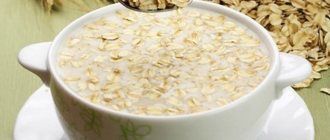Why the habit of eating at night should make you wary
In general, our body knows very well that sleeping and eating are fundamentally different processes. Therefore, when a person goes to bed, the level of leptin in his blood increases Neuroendocrine Profiles Associated with Energy Intake, Sleep, and Stress in the Night Eating Syndrome - a hormone that suppresses appetite.
After waking up, he returns to normal. But the level of ghrelin increases The role of leptin and ghrelin in the regulation of food intake and body weight in humans: a review - this hormone makes you think about whether it’s time to have a snack. This is how a healthy human body regulates appetite under normal conditions.
Sometimes glitches may occur. Perhaps you exercised too actively during the day and your body needs energy. Or you’re nervous and your brain needs extra glucose to recover. Or maybe you just drank a lot of liquid before bed, and your full bladder keeps waking you up.
In general, due to some extraordinary situation, you don’t have enough calories, you can’t really sleep, the hormonal regulation of your appetite goes wrong - and you find yourself at the refrigerator at midnight.
However, if you experience night hunger attacks at least a couple of times a week Treatment of Night Eating Syndrome, the cause may be more serious.
Scientists say that nighttime eating is quite common. Most often, Sleep-Related Eating Disorders occur in people with obesity The night-eating syndrome and obesity, as well as in those who take psychoactive substances or suffer from mental disorders.
In approximately 1.5% of the population, the prevalence of night eating syndrome and binge eating disorder among overweight and obese individuals with serious mental illness, night binge eating takes such a pronounced form that it is classified as a disorder - night binge eating syndrome.
Scientists don't know exactly why people wake up at night to snack on a regular basis. However, there are versions.
Eating at night is harmful!
Most people cannot eat at all in the morning, and easily skip breakfast. But it’s probably impossible to find people who don’t like to dine. Many people like to eat before bed, and attempts to “not eat after six” usually lead to breakdowns and irritability.
From a medical point of view, overeating at night is harmful, as this leads to the active production of insulin, a hormone that promotes fat accumulation. So it turns out that on the one hand, eating at night is bad, but not eating is also not good.
Therefore, it is very important to find a middle ground, that is, not to overeat in the evenings. The following techniques will help you solve this problem, which can be divided into three groups - behavioral, dietary and psychological.
What draws you to the refrigerator at night?
Here are some possible options.
You don't eat enough during the day
Neuroscientist Nicole Avena, whose professional interests include nutrition, diets, and food addictions, said in a comment to Vice that night eating occurs when people begin to starve - for example, they go on a diet that is too strict.
Nicole Avena
Neuroscientist
During the day, these people consume so few calories that their circadian rhythm is completely disrupted. They do not have enough nutrients for proper sleep. Therefore, they wake up from the fact that the body persistently demands food.
This usually goes away as the body adjusts to the dietary restrictions.
This is a side effect of an eating disorder.
Scientists have found that among those who eat at night, many people have diagnosed eating disorders. Thus, one study of Night eating syndrome in patients with eating disorders: Is night eating syndrome distinct from bulimia nervosa? showed that 51% of patients with bulimia and about 35% with anorexia tend to eat after midnight.
Kelly Ellison
Professor of Psychology at the Perelman School of Medicine at the University of Pennsylvania.
When half asleep, people have less self-control. Therefore, a person who persistently avoids food during the day may well look into the refrigerator at night.
Are you worried or living in constant stress?
Prolonged stress is a common cause of why stress causes people to overeat. Including night ones.
The same Professor Ellison found that approximately three-quarters of people who regularly eat at night have experienced some kind of stressful event. It was what disrupted their sleep patterns and made late-night snacking attractive.
Other findings from Night Eating Syndrome in Major Depression and Anxiety Disorders suggest that people with depression or anxiety disorders are more likely to engage in nighttime binge eating.
Essentially, any type of mood disorder can cause a person to wake up and eat at night.
It's just heredity
If someone close to you also wakes up from time to time at night to raid the refrigerator, you may have some kind of common gene Familial aggregation in the night eating syndrome that provokes this behavior. However, scientists have not yet calculated it.
Why do you want to eat in the evening?
A joint study by scientists from two countries* concluded that many people want to eat high-calorie meals in the evening.
There are physiological and psychological reasons for this.
People with impaired production of the hormones leptin and melatonin often do not want to eat breakfast.
During the day they feel sluggish, and in the evening they are alert and efficient. Such people are often called "night owls." If a person has such a specific way of how the body works, then it is unlikely that anything can be done about it; it is better to try to adjust life to suit yourself: find a job at night and lead an active lifestyle in the evening and at night.
Statistics show that among night owls there are quite a lot of people who are overweight.
There is another reason for the desire to eat at night - this is the high secretion of gastric juice.
For people with this characteristic of the body, long breaks between meals are not recommended. We can say that such people are always hungry.
But more often the cause of nighttime “eating” is psychological.
Hunger as a reaction to stress is a common phenomenon. I want to please myself; the most accessible “joy” is to eat something tasty and sweet.
Your biological clock is out of whack.
If you think that everything is in order with your mood, you are happy with your work and personal life, but in the evening you are still drawn to the refrigerator, perhaps your biological clock has gone wrong. This happens when changing time zones, for example, during long and frequent business trips.
In this case, it is better to adjust your diet to your native time zone and continue to eat this way, even if you want to eat at night on a long trip.
Lack of nutritious food during the day.
A fairly common reason for the desire to eat in the evening is the lack of proper food during the day. Everything is simpler here: find such an opportunity! Good nutrition is the basis of health. Do not expose your body to risks, so as not to waste time on long-term treatment.
Some rules for combating night hunger
- If you want to eat something specific, you didn't get it during the day. Eat what you want for lunch, you won't want it at night.
- Don’t go to bed hungry, hunger is an obsessive feeling, you can get rid of it if you eat something. It's better to eat in the evening than at night.
- But it’s still better to eat at least a couple of hours before bedtime. The duodenum, which is involved in the process of food processing, “sleeps” with us. The stomach works, the intestines work, but the bridge between them does not. Hence the reluctance to eat in the morning, dysbiosis, slagging and other troubles.
- Don't listen to recommendations that tell you to eat fruit at night. Almost all of them stimulate the appetite and do not satisfy hunger.
So what to eat in the evening so as not to empty the refrigerator at night?
Light protein foods are best: a piece of fish or white poultry with cooked vegetables, low-fat cottage cheese.
Why protein? It takes quite a long time to digest. During the first hours, such food will undergo primary processing in the stomach and enter the intestines, where it will continue to be digested, giving a feeling of fullness.
*Flinders University, Australia and The University of Liverpool, UK
Why is it harmful to eat at night?
If you only go to the refrigerator occasionally, there is nothing wrong with that. But regular night snacks can be harmful to your health.
- If you eat too much at night, you will most likely have a bad breakfast. This means you will experience a lack of energy in the first half of the day.
- Night digestion disrupts sleep. You will toss and turn in bed and wake up more often to go to the toilet. As a result, you won't get enough sleep and will feel less productive than usual throughout the day.
- Frequent nighttime snacking increases LDL levels over time Nighttime snacking reduces whole body fat oxidation and increases LDL cholesterol in healthy young women and glucose The effects of nocturnal life on endocrine circadian patterns in healthy adults in the blood. This means there is an increased risk of cardiovascular problems, diabetes and obesity.
Neurologists have discovered why after a sleepless night you crave fatty and sweet foods.
A study by American scientists explained why people with chronic sleep deprivation prefer fatty and high-calorie foods. An article published in the journal eLife reports the results of the work.
The experiment at Northwestern University in Chicago (USA) involved 25 men and women aged 18 to 40 years, who were divided into two groups.
Volunteers from each group alternated days with a full night's rest and forced sleep restriction to four hours. At first, people in the first group were allowed to sleep as much as they needed, and then they limited sleep to four hours. And for the subjects from the second group, on the contrary, a sleepless night was followed by a normal 7-9-hour night. A few days later, the experiment was conducted again, changing the conditions for the groups.
The day after each sleepless night, study participants were offered a set menu for breakfast, lunch and dinner. In addition, there was a buffet with various snacks. Scientists observed what experimental participants chose.
“The subjects changed their eating habits,” says neurologist Thorsten Kant. “Those who slept less preferred higher-calorie foods such as donuts, chocolate chip cookies and chips.”
Blood tests confirmed that this behavior appeared to be associated with changes in levels of the endocannabinoid 2-oleoylglycerol (2-OG): it was markedly elevated after a sleepless night.
The consequences of a sleepless night were reflected in the brain. Before eating, volunteers were offered a variety of smells, not just those associated with food. Using functional magnetic resonance imaging (MRI), scientists observed how the so-called piriform cortex responded to odors. This is the first cortical area of the brain to receive information from the nose.
The results showed that this part of the olfactory system in people with sleep deprivation responded much more strongly to food odors. It turned out that in these people the piriform cortex was less connected to the insula, with which it usually exchanges information. The insula receives signals that are responsible for adequate food intake.
Due to disruption of communication between areas of the cortex, important information for the brain is distorted, and this affects eating habits. "When the piriform cortex doesn't communicate properly with the insula, people choose foods that are more caloric than they actually need," Kant says.
Thus, the results of the study showed that the lower the connection between the two brain regions, the greater the concentration of 2-OG and the more obvious the craving for unhealthy food.
“People with chronic sleep deprivation prefer sweet and fatty foods, the frequent consumption of which can lead to obesity in the long term,” says Surabhi Bhutani.
According to scientists, understanding this phenomenon and knowledge of its mechanisms will help adjust eating habits and find new approaches to combat obesity.
But how can you resist seductive aromas after a sleepless night? Kant, reminding us that lack of sleep makes the brain more sensitive to food odors, half-jokingly, half-seriously advises: “It would be a good idea to avoid the donut shop if you have a 6 o’clock flight to catch.”










